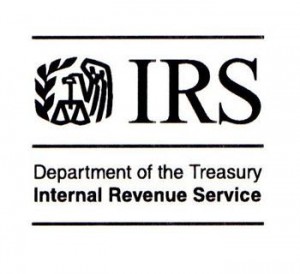 On July 21, 2015, the Internal Revenue Service (“IRS”) issued Announcement 2015-19, in which it announced that it would be making substantial changes to the determination letter program intended to allow retirement plan sponsors to ensure that their plans are qualified (eligible for tax benefits). This announcement will affect all retirement plans intended to be qualified, but will create particular issues for plans maintained by governmental employers (“governmental plans”). Read more.
On July 21, 2015, the Internal Revenue Service (“IRS”) issued Announcement 2015-19, in which it announced that it would be making substantial changes to the determination letter program intended to allow retirement plan sponsors to ensure that their plans are qualified (eligible for tax benefits). This announcement will affect all retirement plans intended to be qualified, but will create particular issues for plans maintained by governmental employers (“governmental plans”). Read more.
Tag Archives: IRS
Governmental Plan Determination Letters: Last Chance?
IRS Clarifies That Plans Do Not Necessarily Have to Recoup Overpayments
(Posted on April 26, 2015 by Carol V. Calhoun)
 What should a retirement plan sponsor do if it discovers that it has overpaid benefits to a retiree or other former employee? The question has recently arisen in the case of the pension plan of Pontiac, Michigan, which accidentally overpaid many of its retirees an average of $1,000 over a 16-month period. Read more.
What should a retirement plan sponsor do if it discovers that it has overpaid benefits to a retiree or other former employee? The question has recently arisen in the case of the pension plan of Pontiac, Michigan, which accidentally overpaid many of its retirees an average of $1,000 over a 16-month period. Read more.
Employee Benefits Effects of Treasury, IRS and Department of Labor Announcements That All Legal Same-Sex Marriages Will Be Recognized For Federal Tax Purposes
(Posted on February 23, 2015 by Carol V. Calhoun)
 This post was updated on June 26, 2015 to reflect the Supreme Court’s decision in Obergefell v. Hodges, which struck down all state bans on same-sex marriage.
This post was updated on June 26, 2015 to reflect the Supreme Court’s decision in Obergefell v. Hodges, which struck down all state bans on same-sex marriage.
The Treasury Department and the IRS announced on August 29, 2013 that all legal same-sex marriages will be recognized for federal tax purposes. On September 18, 2013, the Department of Labor took the same position for purposes of the Employee Retirement Income Security Act of 1974 (“ERISA“). The announcements and corresponding revenue ruling
Because employee benefit plans are extensively regulated by federal law, this announcement means that all employers will be required to recognize such marriages for many employee benefits purposes. Conversely, employers in states that treat civil unions or domestic partnerships as if they were marriages will nevertheless be forbidden from treating such arrangements as marriages for certain employee benefits purposes. However, the precise impact will depend on whether the plan is subject to ERISA or whether it is a governmental or church plan exempt from ERISA. The chart below sets forth areas in which the announcement will affect the operation of different types of plans.
IRS opens determination letter process for governmental plans
(Posted on February 1, 2015 by Carol V. Calhoun)
 In recent years, the Internal Revenue Service (“IRS”) has been allowing plan sponsors to request determination letters on the qualified status of their retirement plans only during certain periods (cycles). For individually designed governmental plans, such a cycle (Cycle E) opened on February 1, 2015, and will remain open until January 31, 2016. Read more
In recent years, the Internal Revenue Service (“IRS”) has been allowing plan sponsors to request determination letters on the qualified status of their retirement plans only during certain periods (cycles). For individually designed governmental plans, such a cycle (Cycle E) opened on February 1, 2015, and will remain open until January 31, 2016. Read more
Determination Letters for Governmental Plans Don’t Address Pick-Up Contributions and Excess Benefit Arrangements
(Posted on January 23, 2015 by Carol V. Calhoun)
 The IRS has issued a reminder that governmental plan sponsors who apply for IRS determination letters covering the qualified status of their plans can’t rely on a favorable letter for whether:
The IRS has issued a reminder that governmental plan sponsors who apply for IRS determination letters covering the qualified status of their plans can’t rely on a favorable letter for whether:
- contributions made to the plan are the employer’s “pick-up contributions” (i.e., pretax employee contributions under section 414(h)(2) of the Internal Revenue Code), or
- the plan has a qualified governmental excess benefit arrangement (i.e., a separate trust that provides only a participant’s annual benefit in excess of the limits under Internal Revenue Code section 415).
IRS Updates Guidance on Governmental Plan Determination Letters
(Posted on October 9, 2014 by Carol V. Calhoun)
 As of October 9, 2014, the Internal Revenue Service has updated its page on determination letters for governmental plans. The page contains information for any governmental plan considering obtaining an IRS determination letter, including the following: Read more
As of October 9, 2014, the Internal Revenue Service has updated its page on determination letters for governmental plans. The page contains information for any governmental plan considering obtaining an IRS determination letter, including the following: Read more
Cafeteria Plans Need to Move Fast to Take Advantage of Year-End IRS Guidance
(Posted on December 16, 2013 by Carol V. Calhoun)
 On June 26, 2013, the Supreme Court issued the Windsor decision, striking down a provision in the federal Defense of Marriage Act which had precluded recognition of same-sex marriages. In September, the Internal Revenue Service (“IRS”) announced that same-sex couples legally married in a state that recognized such marriages would now be treated as married for purposes of federal taxation, regardless of whether their marriages were recognized by their state of residence. The IRS announcement was made retroactive, meaning that such marriages will be recognized back to their inception.
On June 26, 2013, the Supreme Court issued the Windsor decision, striking down a provision in the federal Defense of Marriage Act which had precluded recognition of same-sex marriages. In September, the Internal Revenue Service (“IRS”) announced that same-sex couples legally married in a state that recognized such marriages would now be treated as married for purposes of federal taxation, regardless of whether their marriages were recognized by their state of residence. The IRS announcement was made retroactive, meaning that such marriages will be recognized back to their inception.
The IRS has issued Notice 2014-1, which provides guidance on the application of the new rules to cafeteria plans. However, in many instances employers will need to move quickly to take advantage of relief granted.
Businesses Denied State Income Tax Deductions for Fringe Benefits for Same-Sex Spouses
(Posted on December 4, 2013 by Carol V. Calhoun)

As discussed in the chart, “State Taxes and Married Same-Sex Couples,” most states that do not recognize same-sex marriage are requiring same-sex married couples to file their tax returns as single (or head of household, if they qualify for that status). However, Virginia has now gone further, denying certain Virginia businesses state income tax deductions for fringe benefits they provide to same-sex spouses. As discussed below, the language used is muddy, and the holding is probably considerably less broad than it appears. However, businesses in Virginia need to be aware of its potential effect on them. And to the extent that other states take the same route, businesses in states other than Virginia would also be affected.
If You Like Your Insurance, You Can Keep Your Insurance… At Least For Another Year
(Posted on November 14, 2013 by Carol V. Calhoun)
 In the wake of negative publicity about individuals and small businesses losing their existing health insurance due to the Affordable Care Act, the Department of Health & Human Services, in consultation with the Treasury Department and the Department of Labor, has provided transitional relief. The transitional relief applies only if certain conditions are met, as follows:
In the wake of negative publicity about individuals and small businesses losing their existing health insurance due to the Affordable Care Act, the Department of Health & Human Services, in consultation with the Treasury Department and the Department of Labor, has provided transitional relief. The transitional relief applies only if certain conditions are met, as follows:
New article: Supreme Court Same-Sex Marriage Decisions Create New Rules for Employee Benefit Plans
(Posted on October 4, 2013 by Carol V. Calhoun)
 Carol V. Calhoun‘s article, “Supreme Court Same-Sex Marriage Decisions Create New Rules for Employee Benefit Plans,” has now been published in Baltimore OUTloud. The article discusses the effect of the Supreme Court’s decisions regarding the Defense of Marriage Act and the subsequent guidance by the Internal Revenue Service and the Department of Labor on employee benefit plans.
Carol V. Calhoun‘s article, “Supreme Court Same-Sex Marriage Decisions Create New Rules for Employee Benefit Plans,” has now been published in Baltimore OUTloud. The article discusses the effect of the Supreme Court’s decisions regarding the Defense of Marriage Act and the subsequent guidance by the Internal Revenue Service and the Department of Labor on employee benefit plans.
